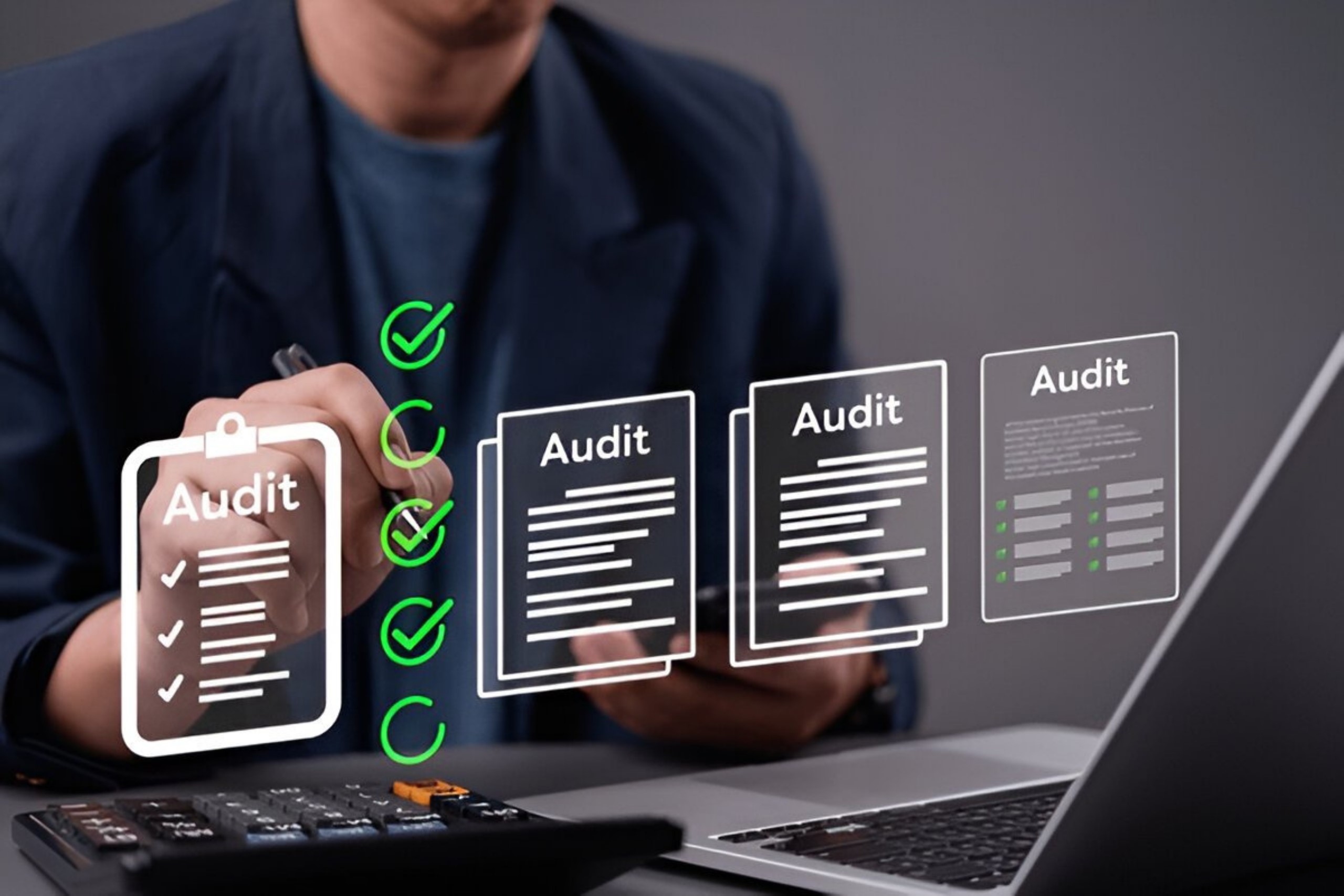Home | Services | Auditing
NAK Auditing L.L.C. is a firm with a wide range of professional services in the form of accounting, auditing, tax consulting, and financial advisory to other industries and businesses of different sizes located in Dubai, UAE. The company is also centrally based in Business Bay- the business hub of Dubai, thus making it close to clients wishing to receive professional financial services.
Our services are provided to large, intermediate-sized, expansion-oriented, and diversified businesses in the United Arab Emirates, which is based on our good local instincts, as well as our truly global attitude and contacts. We are a company that has most of its audit services in Dubai based on our core values of professionalism, integrity, quality and work ethic.

1.Meet Legal Requirements: We do the audits and observe the laws and regulations both domestically and internationally, like the IFRS, to operate with financial transparency and integrity.
2.Tailor-made: We provide various auditing and account services to the unique requirements of your business.
3.Punctual and Quality Service: We are consistent and on time in carrying out the audits, since, as you know, time is everything.
4.Free Expert Consultation: Our audits also include consideration of suggestions to improve operational efficiency, besides compliance assurance.
5.Certified Chartered Accountants and Auditors: Our auditors are well-qualified and highly experienced professionals with a vast business understanding of the United Arab Emirates.
→Financial statement/ Internal Audit.
→External / Statutory Audit
→Inventory Audit
→Voucher Audit
→Liquidation Report
→VAT Audit
→Books Reconciliation
→Audited Financial Statements.

1.Enhancement of Accuracy: Audits help in financial reports by eliminating discrepancies that are present in the accounts.
2.Growth in Confidence: The personnel and investors will enjoy increased confidence and trust in the financial positions of the organisation following the implementation of audits.
3.Enhanced Compliance: Frequent audits will assist in avoiding legal problems through taking care of adherence to the applicable statutes and regulations.
4.Increase in the Efficiency of Operations: The auditors can also enhance the operational efficiency of the company in that they can expose the areas where the processes and controls should be tightened.
6.Detection and Prevention of Fraud: The audit role enhances internal controls and, in this regard, will help to eradicate the risk of fraud.
7.Risk mitigation: Audits give some form of security that any misplaced transactions, such as the theft of assets and falsification of financial records, will be brought to the limelight and eliminated.
8.Strategy Development: The data, which comes as a result of the audits, is of great importance since it provides the outlines of the future actions and plans of the company based on the thoughtful and attentions vision that shapes.
1• KYC Information (Trade License, MOA, Passport, Visa, Emirates ID of all partners)
2• Bank Statements of relevant audit periods
3• Supporting Bills (All Sales, Purchase & Expenses for the Relevant Period)
4• Trail Balance, Balance sheet, P&L Statement, Cash Flow statement (“It is applicable if the transactions are recorded.”)
5• Software Access (“It is applicable if the transactions are recorded.”)
6• Ejari /Tenancy Contract
7• Payroll Details/ Employee contract (Where applicable)
8• Legal Charges (For Trade License, MOA Expense Bills)
9• Asset and Inventory Records (where applicable)
10• Fixed Asset Register (where applicable)
11• Inventory List and Valuation (where applicable)
12• Accounts Receivable Aging (where applicable)
13• Accounts Payable Aging (where applicable)
14• VAT Filing Reports for the Pertaining period (where applicable)
15• Loan agreement (Where applicable)
1.Audits are the means of checking and balances to reduce the possibility of fraud, such as falsification of records and misappropriation of resources.
2.Audits provide confidence and assurance to the financial statements by the lenders, shareholders and other interested parties.
3.The audits would be needed to keep track of the compliance of the organisation with the policies and regulations related to bookkeeping, accounts and other financial exercises.
4.Finally, audits will aid in the assessment of potential spheres of enhanced productivity and efficiency, which will help the organisation in making superior decisions.
Here are some common questions about Accounting Service.
Auditing services involve an independent examination of a company’s financial statements to ensure accuracy, transparency, and compliance with UAE laws and International Financial Reporting Standards (IFRS).
Yes. Most businesses registered in the UAE, including mainland and free zone companies, are required to maintain audited financial statements for license renewal, bank requirements, and regulatory compliance.
Auditing improves financial credibility, builds stakeholder confidence, reduces business risks, and ensures compliance with corporate tax and VAT regulations.
Almost all mainland LLCs, free zone companies, and entities applying for bank loans must submit audited financial statements annually.
1.Statutory Audit – For compliance with UAE regulations.
2.Internal Audit – To strengthen internal controls and risk management.
3.External Audit – Independent verification for banks and stakeholders.
4.Tax Audit Support – Ensuring readiness for FTA inspections.
WhatsApp us
Social Profiles